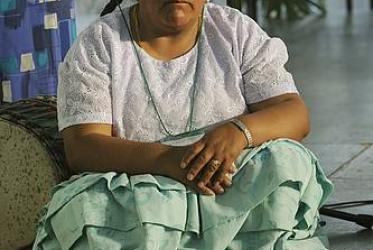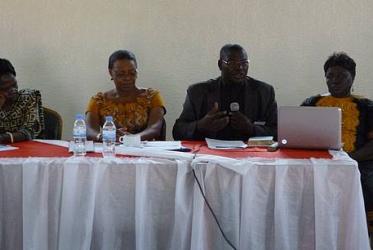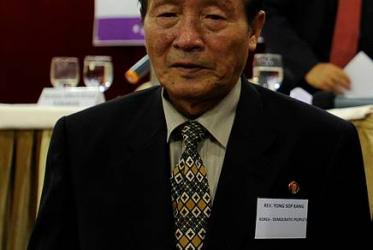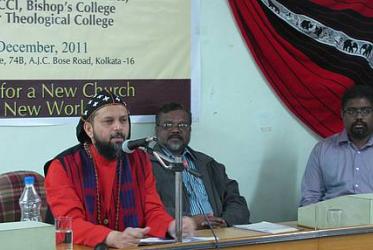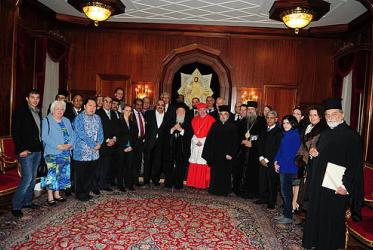Displaying 1721 - 1740 of 1918
WCC disowns doctrine used against Indigenous Peoples
27 February 2012
WCC Executive Committee sends message to Syrian churches
20 February 2012
Christian self-understanding in the context of indigenous religions
14 February 2012
Youth longing for peace in the Arab world
06 February 2012
Churches are called to be peacemakers in Africa
03 February 2012
WCC expresses condolence over Kang Young-sup
23 January 2012
WCC urges protection of religious minorities in Pakistan
23 December 2011
Just peace, prayer and a common witness keep church relevant
22 December 2011
A church that excludes cannot be holy, assert Indian churches
21 December 2011
Ecumenical delegation visits Ivory Coast amidst political crisis
13 December 2011
Durban outcome is not enough, says WCC
13 December 2011
Religious voices advocate for climate justice at Durban
28 November 2011
Before Durban climate talks, Brazilian ecumenists think about Rio+20
23 November 2011
Human rights advocacy is a prophetic witness of the churches
01 November 2011


